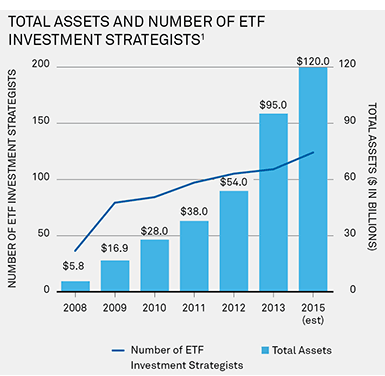WHAT IS AN ETF AND HOW TO INVEST IN ONE
Post on: 21 Октябрь, 2015 No Comment

Get ready for Barbara Friedberg’s upcoming book, ”How to Get Rich; Wealth Building Guide for the Financially Illiterate.” (sign up above for first look)
ETF INVESTING
Investing in ETFs the Slow Path to Wealth
The internet is filled with tips and strategies to get rich. In fact the Google search term that most frequently leads readers to this website is how to get rich fast. Although there are a few people that strike it rich, most of the wealthy do it the old fashioned way, bit by bit. Many individuals have become wealthy through slow and steady investing.
When the stock market tanks and the news is filled with 100 point drops in the DOW, investing gets a bad rap. When the economy experiences one of its periodic recessions, and investors run for the hills, theres a fear that investing only leads to loss.
After a year of double digit returns like last year, investors start pouring money back in to the stock markets. Along with rising markets, comes increased interest in how to invest.
Every investor must realize that there are risks inherent in investing. The value of your investments will go up and down. Thats why you dont want to invest money in the stock market you might need in the next few years.
What is an ETF?
ETF is an abbreviation for Exchange Traded Funds. These are relatively new products for investors, first introduced in 1993. These investment vehicles are similar to mutual funds. which package together groups of stocks, bonds, or both. ETFs initially mirrored the popular index funds with the first one holding a portfolio of stocks which matched the S & P 500 index. Up until 2008, almost all ETFs tracked specific indexes.
But, like any popular investment opportunity, once the investment community sees an opportunity for additional profits, they roll out more products. So, today you can get many other varieties of ETFs. In addition to ETFs tracking indexes such as the S & P 500 (SPDR) and the QQQQ which is based on the NASDAQ 100 index, there are inverse ETFs, designed to go up when the markets drop, ETFs populated with commodities, and countless other varieties. I suggest sticking with the broad based index ETFs and avoiding the more esoteric varieties. Simpler is usually better.
You may be wondering, why invest in an ETF if theres already a mutual fund with the same holdings?

Advantages of ETFs
- Lower fees than mutual funds .
- Can be bought and sold like stocks throughout the day through your investment brokerage account.
- Can be bought on margin (with a loan from an investment broker).
- Or sold short.
- They can be more tax efficient than mutual funds. When many shareholders in mutual funds want to sell, The fund must sell individual securities to meet the demand and this may cause capital gains to those remaining shareholders.
They sound great, what is the down side?
Disadvantages of ETFs
- The price of the ETF might deviate a bit from the NAV or underlying value of the assets. You might pay a premium for the ETF, or maybe receive a discount (thats a plus).
- Since the ETFs are bought from a discount broker, there is usually a small brokerage fee. Although some discount investment brokers waive the fees on certain ETFs. Charles Schwab offers their own ETFs commission free and they also have among the lowest minimums to open an account.
- Unless youre investing in a commission free ETF the popular practice of dollar cost averaging (regularly investing a specific amount) is better suited to no load (commission) mutual funds.














